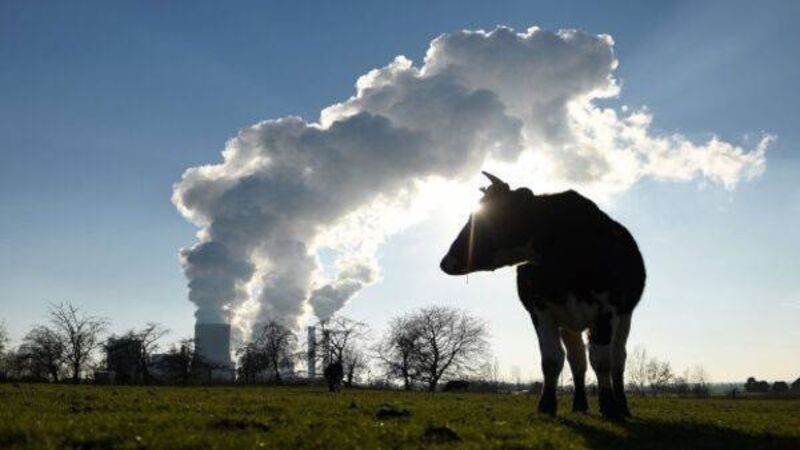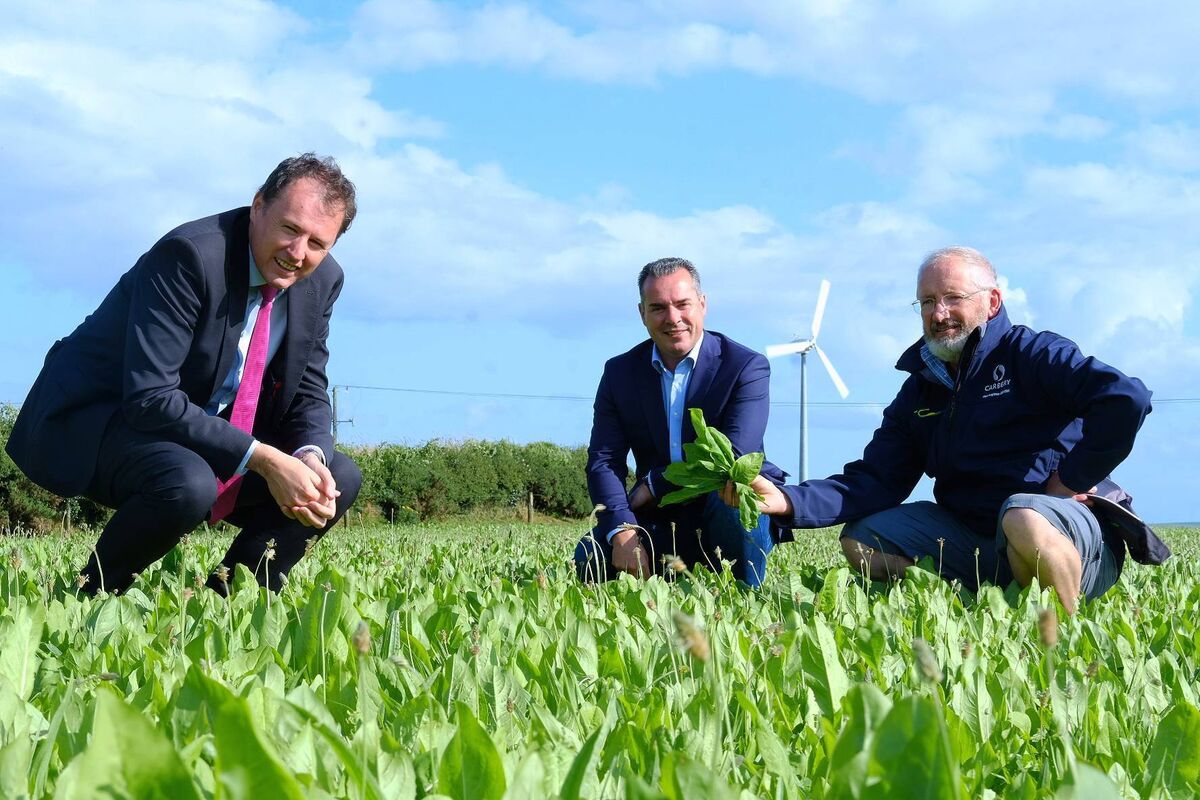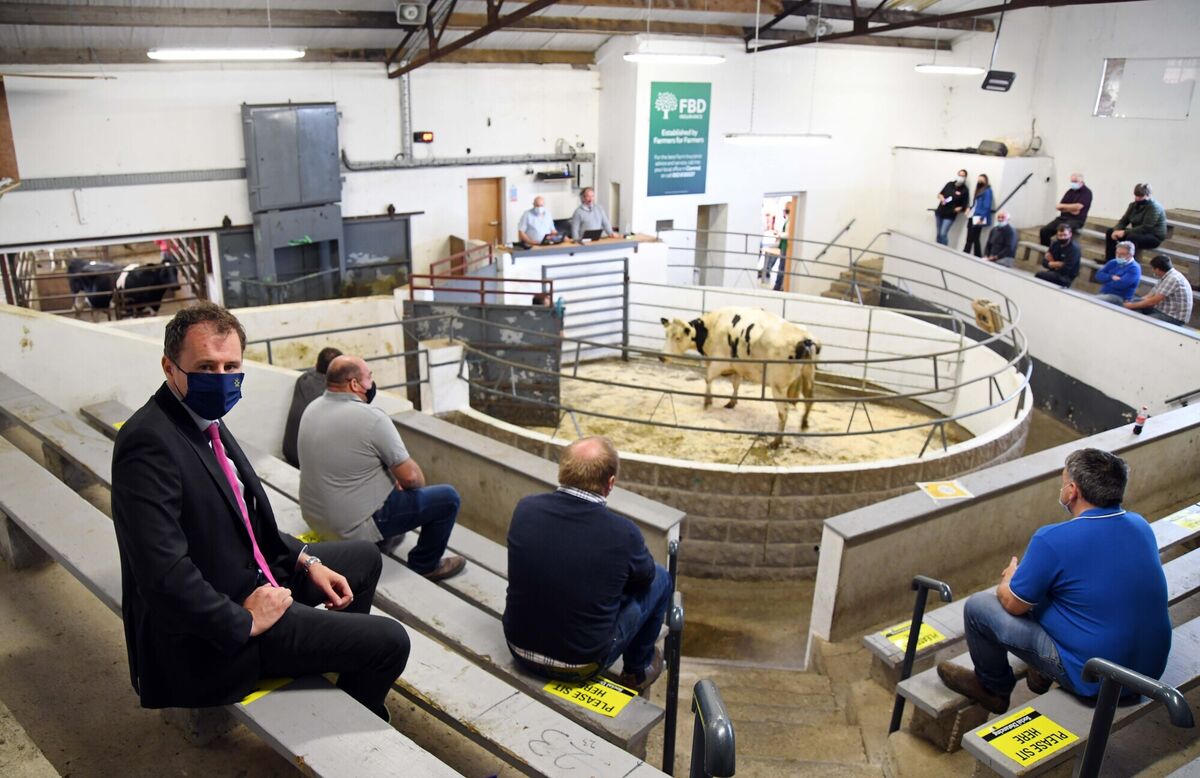A CAP that works, sustainable farm incomes, quality food on shelves

Minister for Agriculture, Food and the Marine, Charlie McConalogue says that while climate change is a reality, farmers, more than most, are sensitive to the impact of extreme weather conditions.
Engagement and consultation continue between the Department of Agriculture and stakeholders in relation to the new Common Agricultural Policy (CAP) strategic plan for Ireland.
Minister Charlie McConalogue is visiting marts across the country this week to get the views of farmers, many of whom have already raised concerns around convergence, and the new environmental schemes outlined in the Policy.
Farmers are also asking for clarity around the definition of an ‘Active Farmer’ and they want recognition for the grass-fed system approach that operates in this country.
Minister McConalogue, meanwhile, spoke to the Irish Examiner recently and highlighted how “significant information” is being gathered through the consultation process.
It is information he believes that will be used to create a policy that ultimately works for Irish farmers.

“Significant information has been provided to the process; I also wanted to make sure that as much information as possible was provided to farmers and stakeholders so they could make informed considerations and feedback into that process,” the Minister added.
“It is important that the schemes work well and are practical for farmers. The key focus is to ensure that the structure of CAP works well for farmers and that it delivers in terms of food production, and in terms of Ireland’s environmental and climate change objectives.”
He pointed to the “flexibility” that Ireland will have but highlighted how a national plan must also work within the overall CAP objectives.
Once all the necessary information is gathered, the Department will take on board the submissions that have come in from farmers, farming organisations and the wider public and assess and evaluate all of that in the context of the proposed schemes.
Ireland will submit its CAP proposal to the EU at the end of this year and the new CAP will kick off from January 2023.
“I want farm incomes to become the key focus of CAP and I also want to ensure that it is structured in a way that works well for everyone,” Minister McConalogue continued.
“Overall there has been a lot of positive feedback in relation to some of the measures that are being proposed.
“One area that got a lot of attention during the consultation period was the suckler carbon efficiency scheme and on whether there is a need to put restrictions on farmers that participate in the scheme and keep additional cows over and above what is allowed in the scheme.
“The feedback on that is certainly something that I will be considering very closely. I think that in relation to the environmental schemes there has been very constructive engagement and I will also be considering all of that as well.”
The Minister also highlighted how projections in relation to the cost of food is still unclear, his focus will be on improving farm incomes and adding value to produce.
Food Vision 2030 which was launched by the Minister in July will focus on an integrated food systems approach that will see Ireland become a world leader in Sustainable Food Systems (SFS) over the next decade.
Its aim is to deliver significant benefits for the Irish agri-food sector itself, for Irish society and the environment and to demonstrate that the Irish agri-food sector meets the highest standards of sustainability – economic, environmental, and social.
“My key objective is to ensure that we continue to produce food and do it really, really well,” said the Minister. “But going forward, we have to have a focus on adding value rather than volume to the produce.
“It is important in terms of adding that value to our produce to get the maximum price for the food we export and that we are not increasing our carbon footprint and contributing to the overall role of carbon footprint in the wider economy.
“We must have those credentials in terms of our food production because that is what will add value to the food we are exporting and get us onto the best consumer shelves.”
He said it was on that basis that the national herd would need to be kept “stable” and not increase so that the focus remained on the food that Irish farmers were producing and on finding ways to add value to it.
“The way we do that is to reduce the carbon footprint of the food we produce because that is what consumers want,” Minister McConalogue continued. “This of course is important too in the overall contribution to climate change objectives.”

Meanwhile, The EU Commission’s Farm to Fork strategy as well as the EU Biodiversity Strategy for 2030 include key policy developments for sustainable agriculture.
The aim of the Farm to Fork Strategy is to move towards food systems that stimulate dietary changes beneficial for health, decreasing the impacts on the environment and climate, while leaving no one behind.
It puts most of the burden of the transition on farmers, fishers and aquaculture producers which is to have a pivotal role to play in making food systems sustainable.
Its intention is to create incentives through different means, ie, CAP to help them change their practices and methods to those that are more sustainable.
And, Ireland it seems will be at the cutting edge of all of this.
“How we produce food and the connection to human health and environmental health is also part of all of that - the full picture really of the system in which the food is being produced,” the Minister added, before highlighting how the move puts Ireland “in a very strong place internationally” as it is the first country to lay out a food systems approach that has been led by the stakeholders themselves.
“It is a strategy that can be followed through on and delivered over the next number of years and central to it is to ensure that what we do adds to farmers and primary producers incomes. I believe that a food systems approach will deliver on that.”
On the possibility of rising food costs for consumers, the Minister said that his focus is on improving farm incomes and the best way to do that is to add value to the produce.
“Projections in relation to food price are still unclear but we export 90% of what we produce; we have a very strong green and environmentally-friendly image and this is something that we need to build on and deeped over the coming years,” he added.
“Reducing the carbon footprint of the food we produce is the best way to add value and to ensure that we get the best price available internationally.
“While we have no control over what will happen with food prices internationally, we do have control over the value of the food we produce and that is what needs to be our focus now so that we can ensure that farmers are rewarded well for what they do.”
The Minister has also signed a statutory instrument that will give effect in Irish law to additional price reporting obligations which will aim to improve food market price transparency in the EU.
“This is a key step in moving forward to establish a food ombudsman or regulator office by ensuring transparency in the food supply chain,” he continued.
“A dedicated independent office will be established over the next few months; it is an important step and what I ultimately want to ensure is that we bring parity to the food supply chain and a better understanding of the margins.
“I want to ensure that those who are putting such a massive effort into producing that food at farm level are able to see what is happening in the food supply chain as the food makes its way to the consumer's table.
“And that they will have confidence that they are getting a fair price for their produce.” And, earlier this week, Minister McConalogue addressed the ‘Food is the Future’ conference which focused on the role of young people in sustainable food systems.
He also took the opportunity to highlight the role of education in food systems transformation.
“We need to facilitate the voices of youth so they can be heard and to allow them to fully participate in debates related to agriculture and food systems,” he added.
“Half the world is under 30. Policy makers and the leaders of today must identify new opportunities for the leaders of tomorrow to be actively engaged in enabling food systems transformation.
“We need to teach our young people in school about food, its composition, its nutritional values and its link to healthy diets and well-being.
“We also need to help our young people to understand the environmental, social and economic costs of food waste and food loss.
“Education and training is the key to bridging the growing disconnect between young people, sustainable food production, and consumption.”


